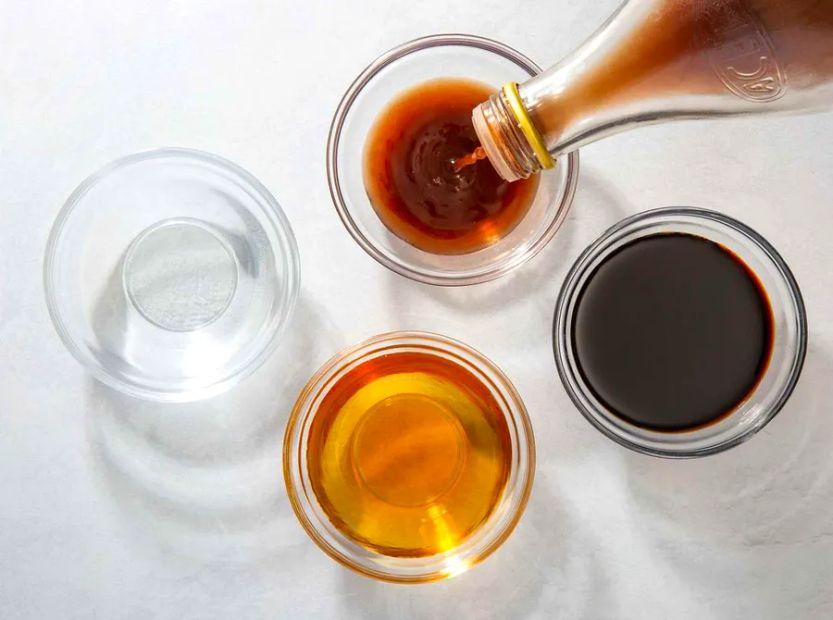Can Vinegar Expire?

Vinegar is a true all-rounder in the kitchen. It plays a vital role in pickling, crafting salad dressings, and is a key ingredient in various cooking methods. Vinegar can also transform leftover fruits, vegetables, or herbs into refreshing shrubs for cocktails or seltzers. Beyond cooking, it serves as an excellent cleaner (though not for disinfecting) and a descaler for appliances. I make it a habit to run a vinegar cycle in my dishwasher, washing machine, and coffee maker every few months. It helps break down grease on both your food and your countertops. With all its uses, it often raises the question, 'Is there anything vinegar can't do?'
Vinegar is such an essential ingredient that it ranks as a pantry must-have, alongside staples like salt, pepper, and oil. But being a pantry essential often means it sits on the shelf, barely touched—purchased for some culinary experiment or cleaning project, then forgotten about for months or years.
So, if you find that bottle months or even years later in the back of the pantry, is it still safe to whip up a vinaigrette? With many food items, determining if something has gone bad is easy—simply smell, look, taste, and sometimes feel. But vinegar is different. Its sharp odor and flavor are noticeable from the start, and its appearance can vary greatly, from perfectly clear to a bit cloudy. So, how do you know if that giant jug of white vinegar you bought years ago is still usable? And what about the specialty vinegar you received as a gift, tucked away and forgotten—can it still be used?
What Exactly Is Vinegar?
The key to understanding vinegar’s shelf life and versatility lies in its basic nature. Vinegar gets its signature tart taste from being an acid, a product of fermentation, where microorganisms break down ethanol alcohol. It can be made from any alcohol-based liquid, such as wine, hard cider, or even neutral spirits like vodka, which is the base for white vinegar.
Balsamic vinegar, however, stands apart from this process. Instead of being fermented from alcohol, it's made by fermenting pressed grape juice in oak barrels, where it slowly ages and thickens. Of course, to get the real deal, you’ll need to check the label, as some brands mislead buyers by coloring white vinegar and labeling it as balsamic.

Abby Mercer/Dinogo
Vinegar isn’t just a flavor enhancer; it can also serve medicinal purposes. Apple cider vinegar, for example, is often used to ease sore throats and digestive issues. Many people swear by its natural probiotics to combat bloating and boost overall gut and immune health, often drinking a shot daily. Personally, I prefer a store-bought sparkling apple cider vinegar drink for its milder taste, but there’s no one-size-fits-all when it comes to preferences.
Can Vinegar Expire?
The short answer is: Absolutely not!
As we've established, vinegar is a product of fermentation, which gives it an effectively infinite shelf life. Its high acidity (with a pH of 2-3) is a powerful preservative, ensuring that the very properties which make it essential in cooking also keep it fresh in your pantry for years.
If left sitting, white vinegar will remain unchanged. Other varieties might experience slight alterations in color, become cloudy, or develop sediment. These changes are purely cosmetic and don’t affect the safety of the vinegar at all, so there's no need to worry about using it.
One of the less appetizing changes that might occur over time is the formation of a slimy substance called a 'mother.' If you're familiar with kombucha or sourdough, you may recognize the term — it’s a natural byproduct, but still perfectly harmless.
The only real consequence of leaving vinegar alone for too long is a gradual reduction in its acidity, making it less potent. This is why you'll often see a 'best by' date on the bottle, but don’t be fooled—it’s not an expiration date. Vinegar doesn’t go bad. While older vinegar won’t harm you like expired food might, the flavor and quality can change with time.
While vinegar never expires, there is an ideal window for storage depending on the type. For wine vinegars, balsamic, and rice vinegar, it’s typically 2-3 years, while apple cider vinegar can last up to 5 years. As for distilled white vinegar, it's basically good forever—well, until the end of the world, anyway.
How to Store Vinegar
Vinegar prefers a cool, dark environment, so storing it in a pantry or cellar works best. Be sure to keep unopened bottles out of direct sunlight to prevent the color from changing prematurely. Also, this helps keep the vinegar from overheating.
It’s best to leave vinegar in its original container, so there’s no need to transfer it once opened. And don’t forget to put the cap or lid back on promptly after use to prevent exposure to air.
Make the Most of Your Vinegar:
- 15 Ways to Cook With Apple Cider Vinegar
- 16 Delicious Ways to Use a Bottle of Balsamic Vinegar
- Our Best Main Dish Recipes That Get a Kick From Vinegar
Evaluation :
5/5


